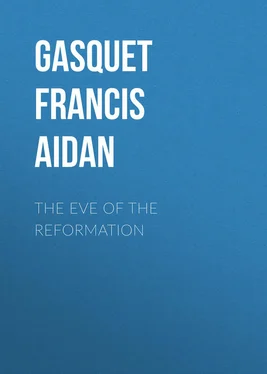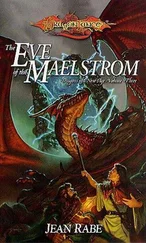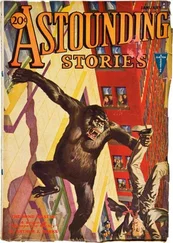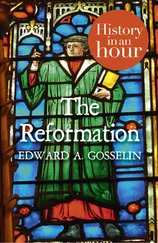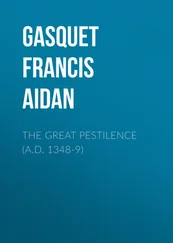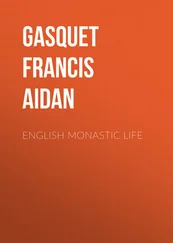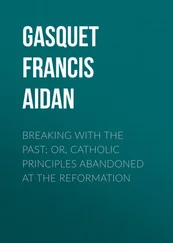Francis Gasquet - The Eve of the Reformation
Здесь есть возможность читать онлайн «Francis Gasquet - The Eve of the Reformation» — ознакомительный отрывок электронной книги совершенно бесплатно, а после прочтения отрывка купить полную версию. В некоторых случаях можно слушать аудио, скачать через торрент в формате fb2 и присутствует краткое содержание. Жанр: foreign_antique, foreign_prose, на английском языке. Описание произведения, (предисловие) а так же отзывы посетителей доступны на портале библиотеки ЛибКат.
- Название:The Eve of the Reformation
- Автор:
- Жанр:
- Год:неизвестен
- ISBN:нет данных
- Рейтинг книги:3 / 5. Голосов: 1
-
Избранное:Добавить в избранное
- Отзывы:
-
Ваша оценка:
- 60
- 1
- 2
- 3
- 4
- 5
The Eve of the Reformation: краткое содержание, описание и аннотация
Предлагаем к чтению аннотацию, описание, краткое содержание или предисловие (зависит от того, что написал сам автор книги «The Eve of the Reformation»). Если вы не нашли необходимую информацию о книге — напишите в комментариях, мы постараемся отыскать её.
The Eve of the Reformation — читать онлайн ознакомительный отрывок
Ниже представлен текст книги, разбитый по страницам. Система сохранения места последней прочитанной страницы, позволяет с удобством читать онлайн бесплатно книгу «The Eve of the Reformation», без необходимости каждый раз заново искать на чём Вы остановились. Поставьте закладку, и сможете в любой момент перейти на страницу, на которой закончили чтение.
Интервал:
Закладка:
43
De Fructu , p. 99. Pace published at Venice in 1522, Plutarchi Cheronei Opuscula , and dedicated the work to Bishop Tunstall. He reminds the bishop of their old student days, and says the translation has been examined by their “old master, Nicholas Leonicus.”
44
Ibid.
45
Ibid.
46
Ibid., p. 51. “Quas vocant proportionum inductiones … antiquitatem superasse.”
47
More to the University of Oxford, in Knight’s Erasmus , p. 31.
48
Bishop Fisher’s love and zeal for learning is notorious. He did all in his power to assist in the foundation of schools of sound learning at Cambridge, and especially to encourage the study of Greek. Richard Croke, the protégé of Archbishop Warham and Bishop Fisher, after teaching Greek in 1516 at Leipzig, was sent by Fisher in 1519 to Cambridge to urge the utility of Greek studies at that university. In the Orationes he delivered there, after speaking of the importance of Greek for all Biblical study, he says that Oxford had taken up the work with great avidity, since “they have there as their patrons besides the Cardinal (Wolsey), Canterbury (Warham), and Winchester, all the other English bishops except the one who has always been your great stay and helper, the Bishop of Rochester, and the Bishop of Ely.” It was entirely owing to Bishop Fisher’s generosity, and at his special request, that Croke had gone to Cambridge rather than to Oxford, whither his connection with Warham, More, Linacre, and Grocyn would have led him, in order to carry on the work begun by Erasmus.
49
Thomas Lupset was educated by Colet, and learnt his Latin and Greek under William Lilly, going afterwards to Oxford. There he made the acquaintance of Ludovico Vives, and at his exhortation went to Italy. He joined Reginald Pole in his studies at Padua, and on his return, after acting as Thomas Winter’s tutor in Paris, he held a position first as a teacher and then in Cardinal Wolsey’s household. In his Exhortation to Young Men , persuading them to a good life, “written at More, a place of my Lord Cardinal’s,” in 1529, he gives a charming account of his relation with a former pupil. “It happeneth,” he says, “at this time (my heartily beloved Edmund) that I am in such a place where I have no manner of books with me to pass the time after my manner and custom. And though I had here with me plenty of books, yet the place suffereth me not to spend in them any study. For you shall understand that I lie waiting on my Lord Cardinal, whose hours I must observe, to be always at hand lest I be called when I am not bye, which would be straight taken for a fault of great negligence. I am well satiated with the beholding of these gay hangings that garnish here every wall.” As a relief he turns to address his young friend Edmund. Probably Edmund doesn’t understand his affection, because he had always acted on the principle he has “been taught, that the master never hurteth his scholar more than when he uttereth and sheweth by cherishing and cokering the love he beareth to his scholars.” Edmund is now “of age, and also by the common board of houseling admitted into the number of men, and to be no more in the company of children,” and so now he can make known his affection. “This mind had I to my friend Andrew Smith, whose son Christopher, your fellow, I ever took for my son… If you will call to your mind all the frays between you and me, or me and Smith, you will find that they were all out of my care for ‘your manners.’ When I saw certain fantasies in you or him that jarred from true opinions, the which true opinions, above all learning, I would have masters ever teach their scholars. Wherefore, my good withipol, take heed of my lesson.”
50
John Clement, a protégé of Sir Thomas More, was afterwards a doctor of renown not only in medicine but in languages. He had been a member of More’s household, which Erasmus speaks of as “schola et gymnasium Christianæ religionis.” He is named at the beginning of the Eutopia , and Sir Thomas, in writing to Erasmus, says that Linacre declared that he had had no pupil at Oxford equal to him. John Clement translated several ancient Greek authors into Latin, amongst others many letters of St. Gregory Nazianzen and the Homilies of Nicephorus Callistus on the Saints of the Greek Calendar. Stapleton, in his Tres Thomæ (p. 250), says he had himself seen and examined with the originals these two voluminous translations at the request of John Clement himself. He had married Margaret, the ward of Sir Thomas More, and in the most difficult places of his translation he was helped by his wife, who, with the daughters of Sir Thomas, had been his disciple and knew Greek well. Mary Roper, More’s granddaughter, and the daughter of Margaret Roper, translated Eusebius’s History from Greek into Latin, but it was never published, because Bishop Christopherson had been at work on a similar translation. On the change of religion in Elizabeth’s reign, John Clement and his wife, with the Ropers, took refuge in the Low Countries. Paulus Jovius, in his Descriptio Britanniæ , p. 13, speaks of all three daughters of Sir Thomas More being celebrated for their knowledge of Latin.
51
Erasmi Opera (ed. 1703), Col. 40.
52
Ibid., Ep. 241.
53
Ibid., Ep. 363.
54
To take one example, Thomas Millyng, who as Bishop of Hereford died in 1492, had studied at Gloucester Hall, Oxford, as a monk of Westminster. During the old age of Abbot Fleet, of Westminster, he governed the monastery, and became its abbot in 1465. He was noted for his love of studies, and especially for his knowledge of Greek. This, says the writer of his brief life in the National Biographical Dictionary , was “a rare accomplishment for monks in those days.” He might have added, and for any one else!
55
Dennistoun, Memorials of the Dukes of Urbino , iii., pp. 415 seqq.
56
Erasmus to Abbot Bere. Opera , Ep. 700.
57
MS. Bodl. 80. It is the autograph copy of Free, cf. J. W. Williams, Somerset Mediæval Libraries , p. 87. It was Abbot Bere who, in 1506, presented John Claymond, the learned Greek scholar, to his first benefice of Westmonkton, in the county of Somerset. In 1516 Claymond became first President of Corpus Christi College, Oxford, often after signing himself, Eucharistiæ servus . Dr. Claymond procured for his college several Greek manuscripts which had belonged to Grocyn and Linacre, which are still possessed by it. At the end of MS. XXIII., which is a volume containing ninety homilies of St. John Chrysostom in Greek, is an inscription stating that this, and MS. XXIV., were copied in the years 1499 and 1500 by a Greek from Constantinople, named John Serbopylas, then living and working at Reading.
58
Ludovico Vives had been invited over to England by Cardinal Wolsey to lecture on rhetoric at Oxford. He lived at Corpus Christi College, then ruled by Dr. John Claymond, whom in his tract De conscribendis Epistolis he calls his “father.” The fame of this Spanish master of eloquence drew crowds to his lectures at the university, and amongst the audience Henry and Queen Katherine might sometimes be seen. For a time he acted also as tutor to the Princess Mary, and dedicated several works to the queen, to whose generosity he says he owed much. He took her side in the “divorce” question, and was thrown into prison for some weeks for expressing his views on the matter. Fisher, More, and Tunstall were his constant friends in England, and of Margaret Roper he writes, “from the time I first made her acquaintance I have loved her as a sister.” Among his pupils at Louvain, besides the above-named Canterbury monk, John Digon, he mentions with great affection Nicholas Wotton, whom the antiquary Twyne speaks of as returning to England with Digon and Jerome Ruffaldus, who calls Vives his “Jonathan,” and who subsequently became abbot of St. Vaast, Arras.
Читать дальшеИнтервал:
Закладка:
Похожие книги на «The Eve of the Reformation»
Представляем Вашему вниманию похожие книги на «The Eve of the Reformation» списком для выбора. Мы отобрали схожую по названию и смыслу литературу в надежде предоставить читателям больше вариантов отыскать новые, интересные, ещё непрочитанные произведения.
Обсуждение, отзывы о книге «The Eve of the Reformation» и просто собственные мнения читателей. Оставьте ваши комментарии, напишите, что Вы думаете о произведении, его смысле или главных героях. Укажите что конкретно понравилось, а что нет, и почему Вы так считаете.
